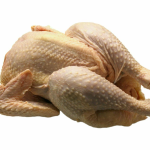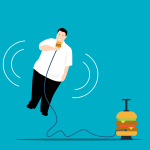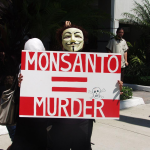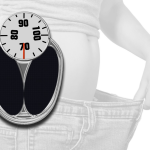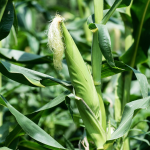A recent study suggested that pesticide residues in fruits and vegetables could counteract some of the nutritional benefits of consuming said produce. Are the results anything to worry about? No, not even a little bit.
Food & Nutrition
Britain may soon approve a gene-edited tomato that boosts vitamin D intake. Let's take a look at the science and politics surrounding this important development.
New research suggests that vegan diets promote weight loss. There's a little bit more to the story, though.
My wife is an excellent cook, and I am a fair sous chef, not quite as devoted as Paul Childs, [1] but persistent and helpful. I always rinse chicken as I take it from its packaging; my wife always tells me that she and the CDC do not recommend that practice. A new study brings physics and bacteriology to the issue, alas, not in my favor – but it offers me some science-informed compromise.
As "fat acceptance" gains cultural traction, a growing coalition of health care providers and advice websites downplays the dangers of obesity to appease social justice activists. LiveStrong offers yet another example of the intellectual tap dancing this charade requires.
Anti-pesticide activist Carey Gillam is beside herself because the public isn't worried about glyphosate exposure. Her complaint inadvertently and helpfully confirms that the anti-GMO movement has lost its sway over the food-safety debate.
Who hasn’t done it? Twisted an Oreo in two and then enjoyed the creamy filling before eating the wafer (with dunking in milk, optional). Why, for the most part, does the filling always remain on just one wafer? A new study in the Physics of Fluids addresses this hugely important issue.
When does Elsie, the Borden cow, go from being an icon to being a Big Mac? When do children and adults decide which animals are pets, and which are eligible to be eaten? A new study suggests these decisions begin when we are tweens.
Can we get our obesity problem under control? In part one of this series, we saw that common policy responses to our expanding waistlines have failed. Let's now consider why these interventions tend to yield such disappointing results.
“Rose is a rose is a rose is a rose,” wrote Gertrude Stein. Others often quote this as a statement of identity. Likewise, in algebra, the law of identity is the equation ‘a = a’. What is true in botanical and mathematical terms also applies to chemistry. Whether extracted from corn or honey created by bees, glucose is glucose, and fructose is fructose.
Chef Julia Child may have chortled “wash that bird,” but for years food safety experts have been pushing back against that practice. Before cooking, washing raw poultry was thought to contaminate the sink and nearby food contact surfaces with “chicken juice” and any pathogens it might contain. A recent observational study conducted by North Carolina State University has pointed to a more significant source of cross-contamination: your hands.
Many obesity experts argue that changing the public's "food environment" is the key to promoting widespread weight loss. This proposed solution is not backed by solid evidence.



